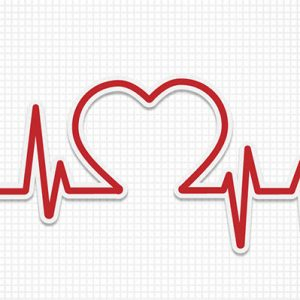Here we go again. Yet another study of the affects of drinking on heart disease has turned up evidence contrary to the next-most-recent study. Can light to moderate drinking have a positive affect on heart attack risk?

A group of researchers from Massachusetts General Hospital claims that light to moderate drinking may actually be good for your heart. Their new study looks at a dimension of the issue that I can’t recall other studies have explored.
Cardiologist Ahmed Tawakol said, “We wanted to understand how light to moderate drinking reduces cardiovascular disease, as demonstrated by multiple other studies. And if we could find the mechanism, the goal would be to find other approaches that could replicate or induce alcohol’s protective cardiac effects without the adverse impacts of alcohol.”
What they did
Researchers wanted to see how small amounts of alcohol were associated with reduction of stress signals to the brain which could trigger heart attacks.
An abstract of the study report explains: “Previous epidemiological studies have suggested that light to moderate alcohol consumption (1 drink per day for women and 1 to 2 drinks per day for men) is associated with a lower risk of cardiovascular disease. But it was unknown whether alcohol was inducing cardiovascular benefits, or whether light/moderate drinkers’ health behaviors, socioeconomic status, or other factors protected their hearts.”
The study, led by K. Mezue and M. Osborne, included more than 50,000 individuals enrolled in the Mass General Brigham Biobank data collection project. The first part of the study analysed the data to see if there was a relationship between light/moderate alcohol consumption and major adverse cardiovascular event.
The second part of the study administered brain scans to 754 members of the larger group who had who had previous PET/CT brain scans on file for comparison, to determine the effect of light/moderate alcohol consumption on resting stress-related neural network activity.
What they found
According to the abstract: “The brain imaging showed reduced stress signaling in the amygdala, the brain region associated with stress responses, in individuals who were light to moderate drinkers compared to those who abstained from alcohol or who drank little. And when the investigators looked at these individuals’ history of cardiovascular events, they found fewer heart attacks and strokes in light to moderate drinkers.
“Finally, the investigators examined whether light/moderate alcohol would be even more effective at reducing heart attacks and strokes in people who are prone to a chronically higher stress response, such as those with a history of significant anxiety. They found that, within the 50,000-patient sample, light to moderate drinking was associated with nearly double the cardiac-protective effect in individuals with a history of anxiety compared with others.”
Unfortunately, the study confirmed earlier predictions that, the greater the alcohol consumption, the greater the risk of certain cancers.
The takeaway
“We are not advocating the use of alcohol to reduce the risk of heart attacks or strokes because of other concerning effects of alcohol on health,” says study senior author Dr. Ahmed Tawakol. “We wanted to understand how light to moderate drinking reduces cardiovascular disease, as demonstrated by multiple other studies. And if we could find the mechanism, the goal would be to find other approaches that could replicate or induce alcohol’s protective cardiac effects without the adverse impacts of alcohol.”
My take
No silver bullet. No ‘finding’ that light to moderate drinking is ‘good for you’. No brass band parades down the mainstreets of medicine. But some solid, common sense findings about stress and heart attacks. And a firm foundation for exploration of other means of inducing the same protective effects as alcohol… Do you agree?
Muse on that…
~ Maggie J.

